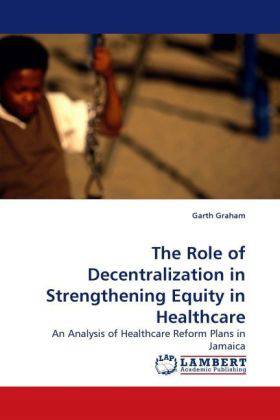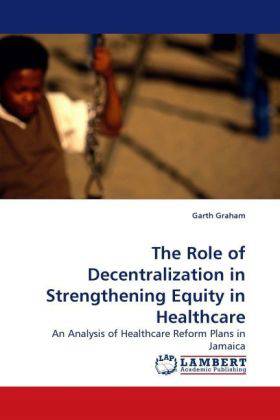
Bedankt voor het vertrouwen het afgelopen jaar! Om jou te bedanken bieden we GRATIS verzending (in België) aan op alles gedurende de hele maand januari.
- Afhalen na 1 uur in een winkel met voorraad
- In januari gratis thuislevering in België
- Ruim aanbod met 7 miljoen producten
Bedankt voor het vertrouwen het afgelopen jaar! Om jou te bedanken bieden we GRATIS verzending (in België) aan op alles gedurende de hele maand januari.
- Afhalen na 1 uur in een winkel met voorraad
- In januari gratis thuislevering in België
- Ruim aanbod met 7 miljoen producten
Zoeken
The Role of Decentralization in Strengthening Equity in Healthcare
An Analysis of Healthcare Reform Plans in Jamaica
Garth Graham
Paperback | Engels
€ 72,45
+ 144 punten
Omschrijving
Health care reform is an active process currently taking place in a number of countries across the world. In many developing countries decentralization is a significant component of health care reform. The island of Jamaica like many other Caribbean and Latin American nations has undertaken the process of decentralizing the administration of healthcare as a part of nationwide structural reform. We look here at the overall process of health care reform in Jamaica and in particular the impact that recent decentralization has had on issues of equity and strengthening of the healthcare system. Many experts have hypothesized that decentralization on a whole has the potential to negatively impact the health care system. The data showed little evidence for differences in equity along geographic or economic groups but did identify the very old and the very young as particularly vulnerable populations, in addition the data highlighted the significant utilization of the private sector by the population and based on this suggestions are made for successful public-private partnership
Specificaties
Betrokkenen
- Auteur(s):
- Uitgeverij:
Inhoud
- Aantal bladzijden:
- 56
- Taal:
- Engels
Eigenschappen
- Productcode (EAN):
- 9783838319582
- Verschijningsdatum:
- 20/10/2009
- Uitvoering:
- Paperback
- Afmetingen:
- 152 mm x 229 mm
- Gewicht:
- 95 g

Alleen bij Standaard Boekhandel
+ 144 punten op je klantenkaart van Standaard Boekhandel
Beoordelingen
We publiceren alleen reviews die voldoen aan de voorwaarden voor reviews. Bekijk onze voorwaarden voor reviews.









